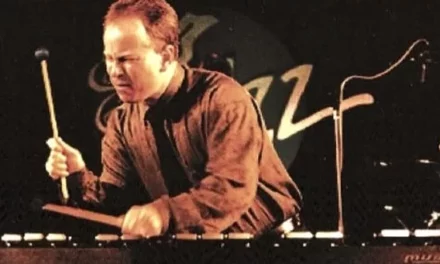The Zimmerli Foundation sponsors an annual competition for pianists at the Brevard Music Festival, judged this year by Min Kwon, Chair of Keyboard Studies at Rutgers University. There are five finalists, each of whom plays a 20-minute program at the “Piano Competition Finals” concert, held this year in Scott Concert Hall at Brevard College on Sunday evening, July 28. Each program had to include repertoire from three or more style periods, so Sunday evening’s concert included sixteen works ranging from Bach to Berg to Bartók, a new set of “three B’s.”
Michael Lenahan (who studies at the Juilliard School) opened the evening with some fine Debussy and a lyrical Liszt transcription of a Schubert lied. He followed this with Prelude and Fugue No. 8 from J.S. Bach’s Well-Tempered Clavier Book II, in a performance that displayed good voicing and nice shaping, but was too metronomic for my taste. His finest moments were in Alban Berg’s one-movement Sonata, Op. 1, which Lenahan despatched with aplomb.
Kunal Lahiry (now at Montreal’s McGill University) came next. Two movements of J.S. Bach’s Partita No. 2, S. 826, demonstrated control, nice articulation and a splendid non-legato. He then played the No. 3 and No. 4 of Sergei Rachmaninoff’s Six moments musicaux, Op. 16 with a particularly exciting account of No. 4. His final work was Frédéric Chopin’s Sonata No. 2, Op. 35. Here I fell out of sync with the soloist; Lahiry’s overpowering raw emotion, taxing the Steinway, didn’t match my vision of Chopin’s sensitive performance on a “gentil” Erard fortepiano.
Chi Zhang (a graduate student at the University of Cincinnati) played Prelude and Fugue No. 5 from J.S. Bach’s Well-Tempered Clavier Book II, the first movement of Mozart’s sonata in C major, K. 330 and Franz Liszt’s Hungarian Rhapsody No. 8. I felt that the entire program was overpedalled, and that the Bach lacked shape with every section monotonously similar. Her best moments were in the Liszt, which emphasized her technical proficiency.
Dongni Xie (now studying at the Peabody Institute) was my personal favorite among the contestants. Her Mozart Sonata in D major, K. 311, was appropriately operatic. Every run in the Chopin Ballade No. 3 in A-flat major was musically motivated. And in the first and third movements of Béla Bartók’s Sonata, Sz. 80, Xie used her fine technique in the service of the music. Her sonorities and harmonies sounded as Hungarian as Géza Anda’s. Bravo.
Pierre Desangles (an 18-year-old Parisian preparing to enter conservatory training) was the final performer. Desangles played Prelude and Fugue No. 21 from J.S. Bach’s Well-Tempered Clavier Book I with absolutely no pedal. (A little discrete pedalling is not objectionable, but if you can get away with none, do so. Desangles did.) Desangles next played the only Beethoven of the evening, the third movement of Sonata No. 17 in D minor. This movement, a hybrid of a rondo and a sonata form, concludes an organically connected sonata. It was an excellent choice for a youthful pianist, since the sonata has great depth but not the overwhelming depth of the late sonatas. Finally, we heard Chopin’s Scherzo No. 1 in B minor, Op. 20. The contained power in Desangles’ performance defers always to his musicianship. He has great future promise.
The judge’s final ranking was this: Kunal Lahiry, Michael Lenahan, Dongni Xie, Pierre Desangles and Chi Zhang. The ranking mattered to the pianists (it determined the size of their cash prize), but it should matter less to us. These are all winning pianists.











